The War on Self Expression
Why do we have to fight to be authentic?
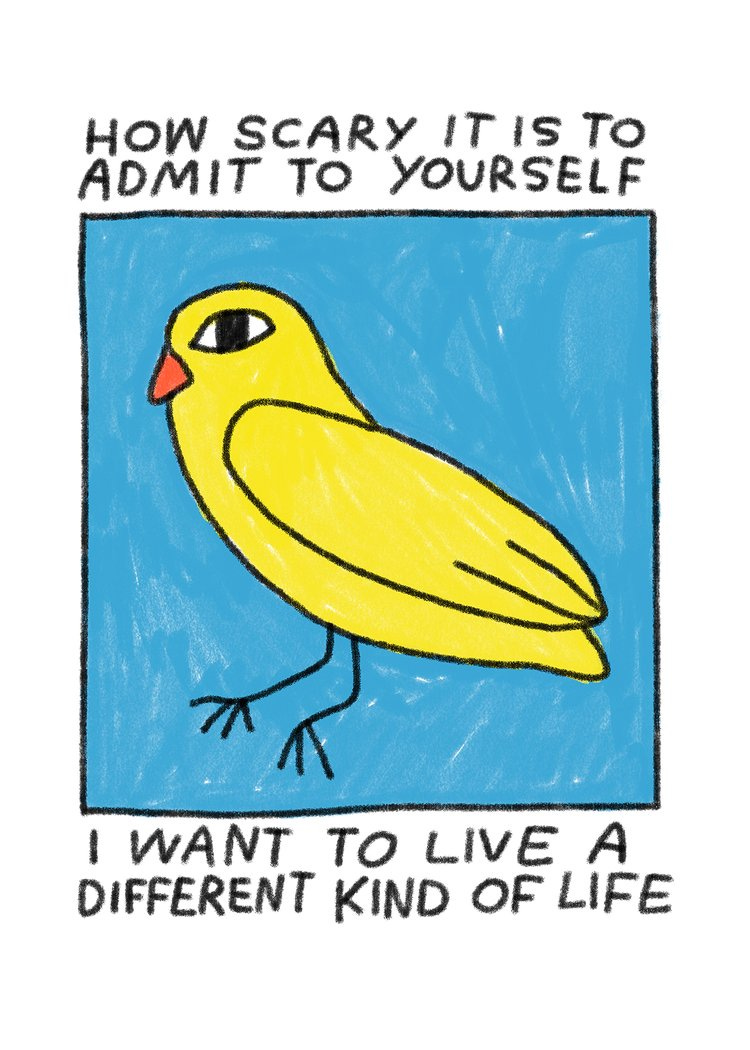
In a world of shiny social media feeds and “picture perfect” lives, a quiet war on self-expression rages within each of us. From the outside, many people appear to “have it all”, but struggle with an inner void. I recently watched a 4-minute video montage of a beaming husband and father who confessed he’s battled depression for 10 years despite living what should be a happy life. He isn’t alone. On online forums, countless people ask why they feel so empty even after achieving everything that was supposed to make them happy. Friends of mine in their 30s and 40s admit they’re confused about what they really want. Unsure if they’re living their own dreams or merely fulfilling a script written by parents, peers and societal norms. We seem to charge through life on autopilot, playing ‘roles’ to win approval, all the while neglecting our genuine selves. We live as if we have forever, postponing real living, until some crisis or reminder forces us to confront what really matters.
Why is it so hard to express our authentic selves?
Superficially, we celebrate individualism. But in reality, stepping outside the norm can draw subtle backlash or outright hostility. We learn early to tone ourselves down, to fit in, to seem more normal. I only much later realised how constant and exhausting this battle for authenticity is. I spent years trying to be the “good” daughter, the overachiever, the agreeable friend. I’m liked by many but I never really felt seen. Self-expression became my performance. It was only with time and a lot of soul-searching did I learn a more liberating way to live. I don’t need everyone’s approval. I just need one other person that I respect, with whom I can be completely myself. And for that, I have my husband to thank.
Having just one other human being who truly “sees” you, that’s enough. Though getting to that point means having to shed the layers of personas we’ve accumulated through life. This means understanding why those layers (or masks) exist in the first place. Why society, from our families to our employers to entire cultures of friends and acquaintances, pressure us to hide or distort who we are.
The cost of not showing up as your genuine self won’t be obvious at first. It will creep in slowly as disconnection, fatigue, and a nagging sense that something is missing. But those who choose to live honestly will find the very thing we all long for, meaning, closeness and peace.
Freedom, Autonomy and the Absence of Necessity
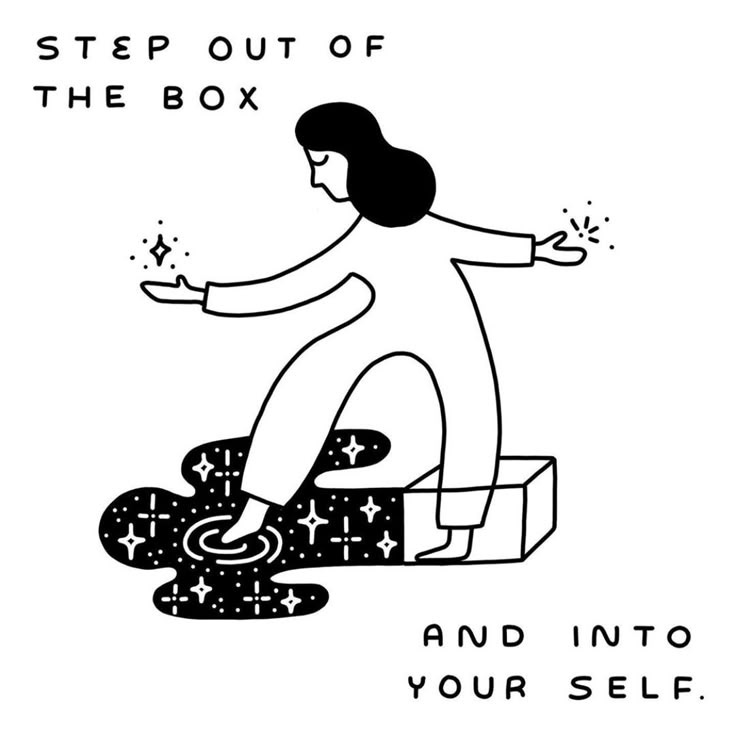
Immanuel Kant famously defined freedom as a kind of autonomy. The ability to act according to your own rational will, independent of external compulsions or necessities. Kant argued that our capacity for rational thought sets us apart from creatures that are slaves to impulse. By using reason, we can rise above mere appetite and choose our path. To be free is not to do whatever we feel like (that might just be obeying our cravings), but to govern ourselves; to live by internal principles we truly endorse, rather than by the dictates of our animalistic instinct or external authority and power.
“Live your life as though your every act were to become a universal law”
— Immanuel Kant on how expression is not about impulse, but responsibility.
If true freedom is absence of necessity, then what does that say about modern life?
Most of us are entangled in necessities of one form of another. We have mortgages, bills, societal expectations, family obligations. It’s a whole web of external pressures. Twentieth-century thinker Simone Weil noted that human existence is inescapably woven into a “network of necessity”, both physical and social. In Weil’s view, we’re all subject to gravity. Not just the literal gravity that pins us to Earth, but metaphorical gravity like hunger, money, reputation and duty. These forces can feel like a form of slavery, pulling us away from the freedom to become our genuine selves. But she offered a paradoxical insight that true freedom may require coming to terms with necessity rather than denying it. She believed that by consenting to the realities of life, accepting hardship, limitation and responsibility, we can achieve a different kind of inner freedom. This is very much in resonance with the teaching of Buddhism’s Four Noble Truths.
In essence, both Kant and Weil highlight autonomy as self-governance. Kant emphasises rising above our impulses, and Weil focuses on humbly embracing reality.
Although, the tragedy is that society adds more chains on top of life’s natural necessities. Beyond the physical needs we must meet, there are unwritten social laws that dictate who we “should” be. We internalise expectations about the “right” career, the “right” way to look and behave, even the “right” kind of dreams to have. Autonomy in a social sense would mean freedom from these imposed narratives by having the ability to choose our identity and values without fear of punishment or ostracism.
So that’s where the war on self-expression heats up. Expressing your authentic self can threaten the social order, so that social order finds ways to keep you in line.
The Mask We Wear
Psychologist Carl Jung provided a much-needed framework for understanding this tug-of-war between our true self and the selves we show the world. One of Jung’s key concept is the persona (a sort of social mask we put on). From childhood, we learn that certain behaviours and feelings are “acceptable” and will earn us praise, while others are “unacceptable”. We shape our outward personality to fit those expectations. Every time you force a smile when you’re actually upset, or agree with an opinion you secretly disagree with, or hide your quirks to seem “normal”, you are solidifying your persona. It may help you navigate society better, but over time, if you identify too strongly with this mask, you can lose sight of your true self. In my family, for example, I was discouraged from showing negative emotions. For thirty odd years, I obediently performed happiness and goodness, while anger, grief, sadness and anxiety were pushed into the shadows.
Jung has a name for that repressed side too. The shadow (essentially all the parts of ourselves we hide or deny in order to maintain the persona). Did I feel sadness, fear or anger growing up? Of course. But I learned to bury those unpleasant feelings deep inside. We usually feel ashamed of our shadow traits because we’ve been taught they’re bad. However, the shadow isn’t evil. It’s just the suppressed truth of our human complexity, and ignoring it is dangerous.
I experienced this firsthand when I moved back home after COVID to be closer to my family. Suddenly, my parents were confronted with aspects of me I’d always kept quiet — the stress, the dissenting opinions, the refusal to conform to Thai norms, the emotional vulnerability of seeing through the illusions. We clashed massively. From my perspective, I was finally trying to be authentic with them, but from their perspective, I was “betraying” the image of sunny, complaint daughter. It struck me painfully to realise that my parents, whom I naively assumed “loved me for who I am”, actually didn’t know the real me at all. They only knew the version of me that I had curated to win their love. My openness wasn’t welcome and was oftentimes seen as a threat.
I am certain that this kind of family dynamic is extremely common. Love gets tangled up with performance. Children perform to please parents, and parents (consciously or not) usually reward the performance more than the child’s honest self. It creates a cycle where everyone wear masks even with the people they supposedly love most.
Why do we do this?
Because on some level, we fear that our authentic self is unloveable. We think we have to earn love by being interesting enough, nice enough, useful enough, successful enough — whatever currency our particular social circle trades in. So long as we accept that premise, we will continue wearing that mask and hide the rest.
This is why I think Jung’s work on the archetypes is so valuable. It’s a reminder to all of us that everyone has similar struggles beneath the surface. We each contain a multitude of characters (Read: my piece on Jung’s 8 archetypes inside our mind). There’s the Hero who wants to individuate, the Child who feels vulnerable, the Shadow of repressed feelings, the Persona we polish for others.
Studying these archetypes gives us a richer language to talk about our inner life. It helps us see, for instance, that everyone is the hero of their own story, and that we can’t be the hero in everyone else’s story. Others will inevitably misunderstand or not fully appreciate us, and that is absolutely okay. We can’t base our identity purely on others’ approval because they’re busy being the heroes of their own narratives.
It’s not your job to be universally adored, but it is your job to be the authentic hero of your story.
There’s No Safe Space
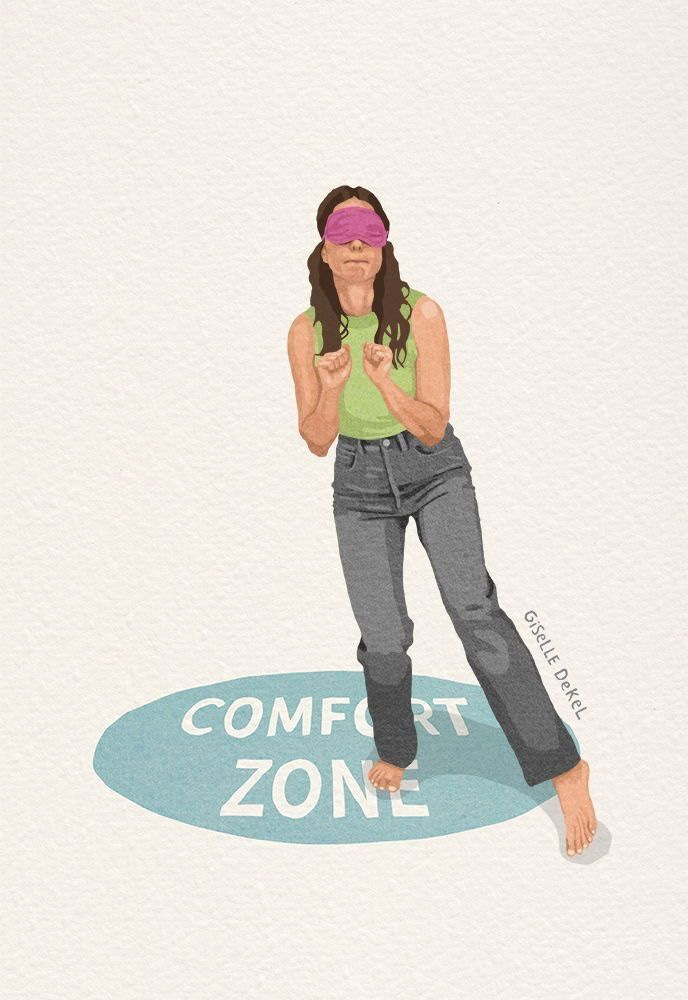
One of the biggest obstacles to authentic self-expression is the lack of psychological safety in our environments. Ideally, families, schools, workplaces, friends would be places where we can voice honest thoughts and emotions without fear of rejection or punishment. In reality, many of these groups demand conformity (overtly or subtly). Our society normalises bad behaviours by those in power, while discouraging the vulnerable from speaking up. Look no further than what we’re seeing being played out with “Jeffrey Epstein’s case” in today’s news. If you call out a boss’s unfair treatment at work, you may be labelled a troublemaker. If you challenge a long-standing tradition in your community, you risk being ostracised. If, like me, you point out dysfunctional patterns in your family, you might be accused of betraying the family itself. The written rule is: don’t rock the boat.
Expressing your true self is risky. The cost of honesty might be embarrassment, public conflict or total exclusion, and humans, being social creatures, tend to avoid those like the plague.
For instance, whistleblowers who expose wrongdoing in an organisation face severe retaliation, not just from bosses but from colleagues who feel the whistleblower “broke the code” by not quietly tolerating the bad behaviour. Similarly, in families, there can be an implicit code of silence, like, don’t acknowledge Uncle’s drinking problem, don’t admit that Mum’s harsh and uncalled criticism is hurtful, pretend everything is fine. When one member finally speaks up, the rest may react defensively because that honesty threatens the family’s fragile image.
Imagine the backlash faced by the LGBTQ+ community. Here are people simply trying to live openly as who they are. To love whom they love, to dress or identify in ways that reflect their own truth. Instead of being celebrated for authenticity, they’ve historically been met with prejudice and violence. And it’s because they dare to live outside the social norms. Not wearing the mask that society has given them.
Even popular culture reflects this theme. The creators of The Matrix, Lana and Lily Wachowski, have said that the film can be viewed as a transgender allegory. A story of coming out and waking up to one’s real identity. In the movie, the main character Neo (Keanu Reeves) senses something is off about the reality he’s living in (an oppressive machine-controlled illusion). He decides to take a leap of faith to discover the truth, even though it’s uncomfortable. Once awakened, Neo literally rejects his given name and identity (Mr. Anderson) and adopts his chosen name, Neo, in the real world. It’s the idea that the identity assigned to you by society might be a lie, and you have to fight to claim your real self.
So, why does society go to such lengths to enforce norms? Why is the suppression game so strong?
It all leads back to control and comfort.
A society, family, or company that is tightly controlled is predictable. It’s easier to manage and exploit people when we all follow the same script. Conformity keeps those in power comfortable. Their worldview isn’t challenged, their authority isn’t questioned. We see this in everything from authoritarian governments jailing dissidents, to religious institutions shunning heretics, to school systems that favour obedient kids over creative ones. Although there are good reasons to why humans need some level of “coordination” to live together, when these norms become too rigid, they start to choke the human spirit.
When Self Love Threatens the System
“In a society that profits from your self doubt, liking yourself is a rebellious act.”
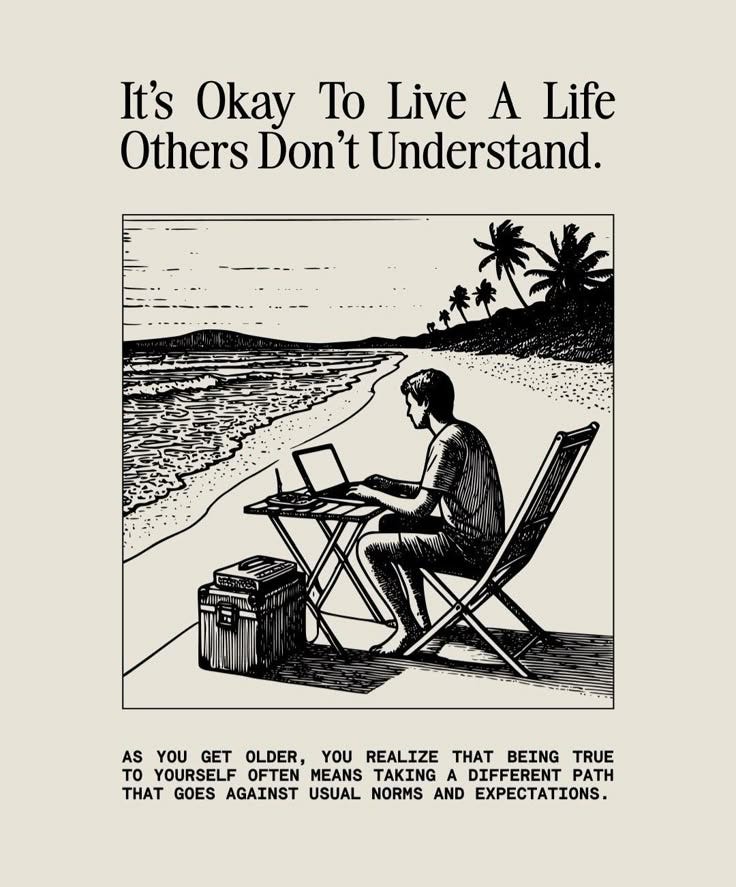
Interestingly, there is a cynical benefit to keeping people disconnected from their true selves. It makes us easier to sell to. A person who doesn’t know themselves will try to fill the void with external approval and material goods. That makes them the perfect consumer in a capitalist economy.
Think about it. If everyone wakes up tomorrow feeling secure, loving themselves, and being content with a simple life, what would happen to all those industries that profit from our insecurities? Advertising in a consumer culture depends on making you feel like you are not enough as you are. The entire advertising industry “exists to make you feel inadequate” so that you will spend more money to feel better. Ads often stimulate desires that weren’t there before. They implant the idea that you lack something (a cooler car, whiter teeth, a slimmer body, higher status) and that you must chase it to be acceptable.
This creates a perpetual sense of dissatisfaction which ultimately keeps the economic machine humming.
Though, at the end of the day, I’m glad we’re seeing more cultural pushback in the form of movements like minimalism, anti-consumerism, and conscious living. Many are coming to realise that “less is more” and that beyond a certain point, accumulating stuff and status doesn’t bring joy, but rather, anxiety. This endless pursuit of more is a trap that distracts us from our genuine selves and values. Minimalism is about decluttering your life of the expectations and objects that don’t serve your authentic wellbeing.
To this, I say “I am enough as I am, I don’t need to prove anything through possessions”.
Living Out Loud
“The War on Self-Expression” is ultimately a war on fear. We have to conquer the fear within us that we won’t be loved as we truly are, and the fear within society’s gatekeepers that they’ll lose power if everyone becomes self-directed. To live authentically is extremely courageous both personally and politically. It’s deciding that the risk of disapproval is worth the reward of genuine living.
We have to imagine it. A world where people lay down their arms in this war, where we cease fighting against our own souls. It would be a world with fewer facades/masks/pretense and more understanding. If I’m secure enough to be real with you, maybe you feel safer to be real with me. We could disagree more openly, though more respectfully, because we wouldn’t see differences as threats but as something natural. We’d spend less time and money on superficial markers of success, and more on experiences and relationships that actually fulfill us. Our measures of a good life would shift from “How do I appear?” to “How do I feel and make others feel?”, from impressing others to simply connecting with others.
Society might become less “productive” in the obsessive GDP sense, but far more creative. Think of all the art, innovation, and empathy unleashed if people didn’t have to devote energy to wearing masks or conforming. No more expending energy to twist yourself into shapes for each audience. The same “you” shows up at work, with friends, and at home. Maybe with a different facets, but fundamentally the same core.
You start to trust yourself because you’re no longer betraying yourself. Your intuition, that’s been long ignored, finds its voice again. Life may not get easier externally, as there’ll still be rejections, losses and injustices, but it gets more real and more bearable. What’s unbearable is living a life where every day you feel a little bit of yourself is dying inside.
We can practice telling the truth in small ways. Like admitting “I actually don’t like this food” when you always pretended to, or saying no to an invite you’re not excited about, or finally sharing a personal creation that you were too afraid to show. Little authentic moments build the muscle for bigger ones. Seek out communities and friends where we feel safe to be ourselves. Reciprocate that safety to others by not judging them harshly. Consume media and stories of people who bravely own who they are, to inspire and remind us that we’re not alone. And most importantly, support the larger cultural shifts that protect self-expression, like defending freedom of speech, inclusivity, and diversity in all forms.
When you drop your weapon (the mask, the pretend agreeableness, the self-censorship) and raise your voice, you light a torch. And that light gives others permission to do the same. Yes, you might stand out like a lone flame at first, but that flame will catch on. Authenticity is contagious in the best way. But that genuine connection is so nourishing that you’ll want more of it, and others who witness it will want some too.
Life is short, but it is varied. We have more room than we realise to move, to change, to reinvent ourselves. Society doesn’t have to be a prison of norms. It can be a canvas where all of us get to add our own colours. The more each of us embodies our true colour, the more vibrant the whole picture becomes. You’re not only freeing yourself, you become part of liberating everyone from the grey monotony of a life half-lived.
Be bold. Be kind. Be you.
Last week, a good friend sent me a video that pretty much fuelled our group conversation that went on for days. Monk Thubten broke down the core of Buddhist teachings in the most relatable and down-to-earth way I’ve ever seen. A proper talk about self-worth, emotional honesty and learning not to abandon ourselves. The lost look on Steven Bartlett’s face made Thubten’s clarity stand out even more. A must watch for those looking to understand why Buddhism operates just like science.



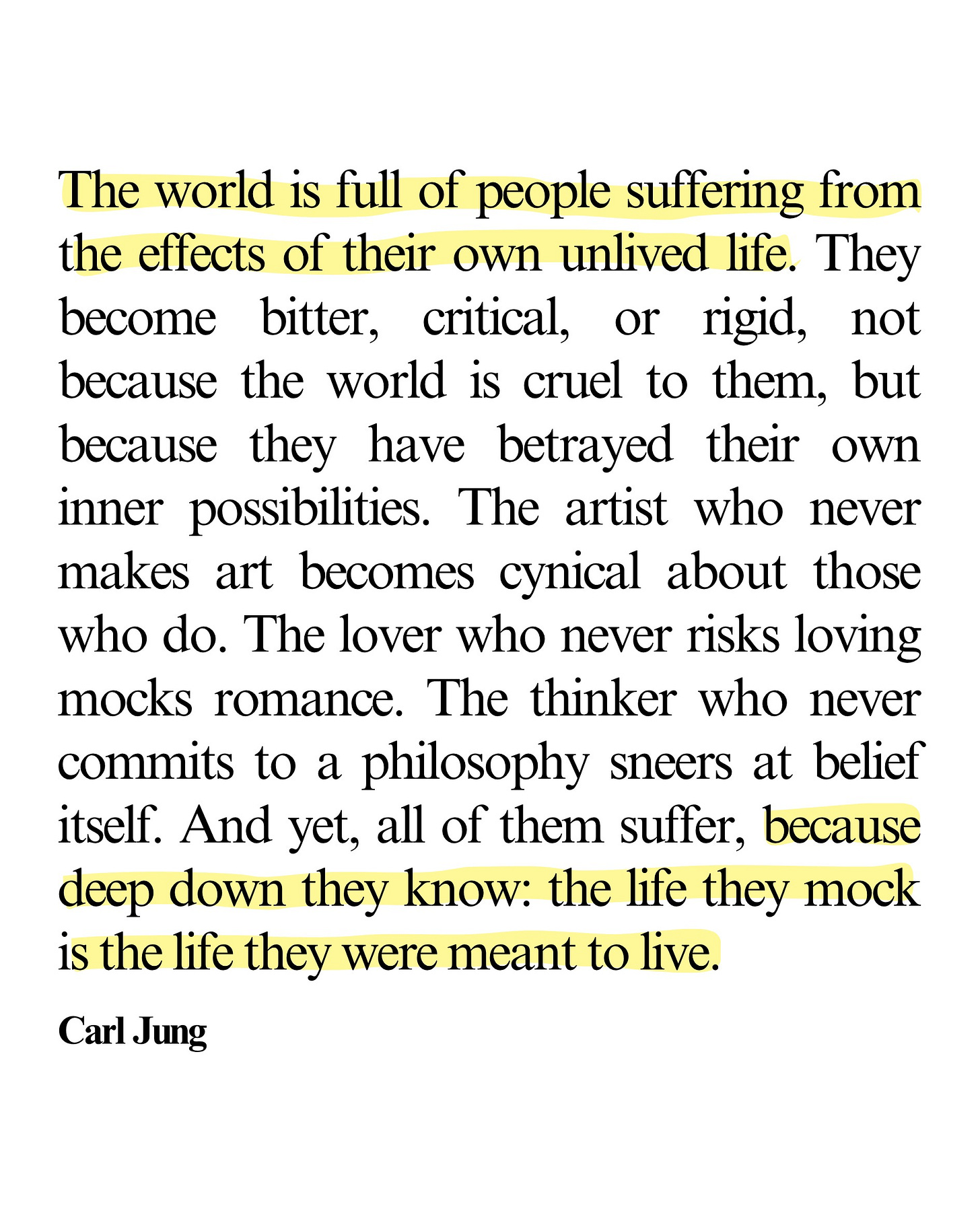
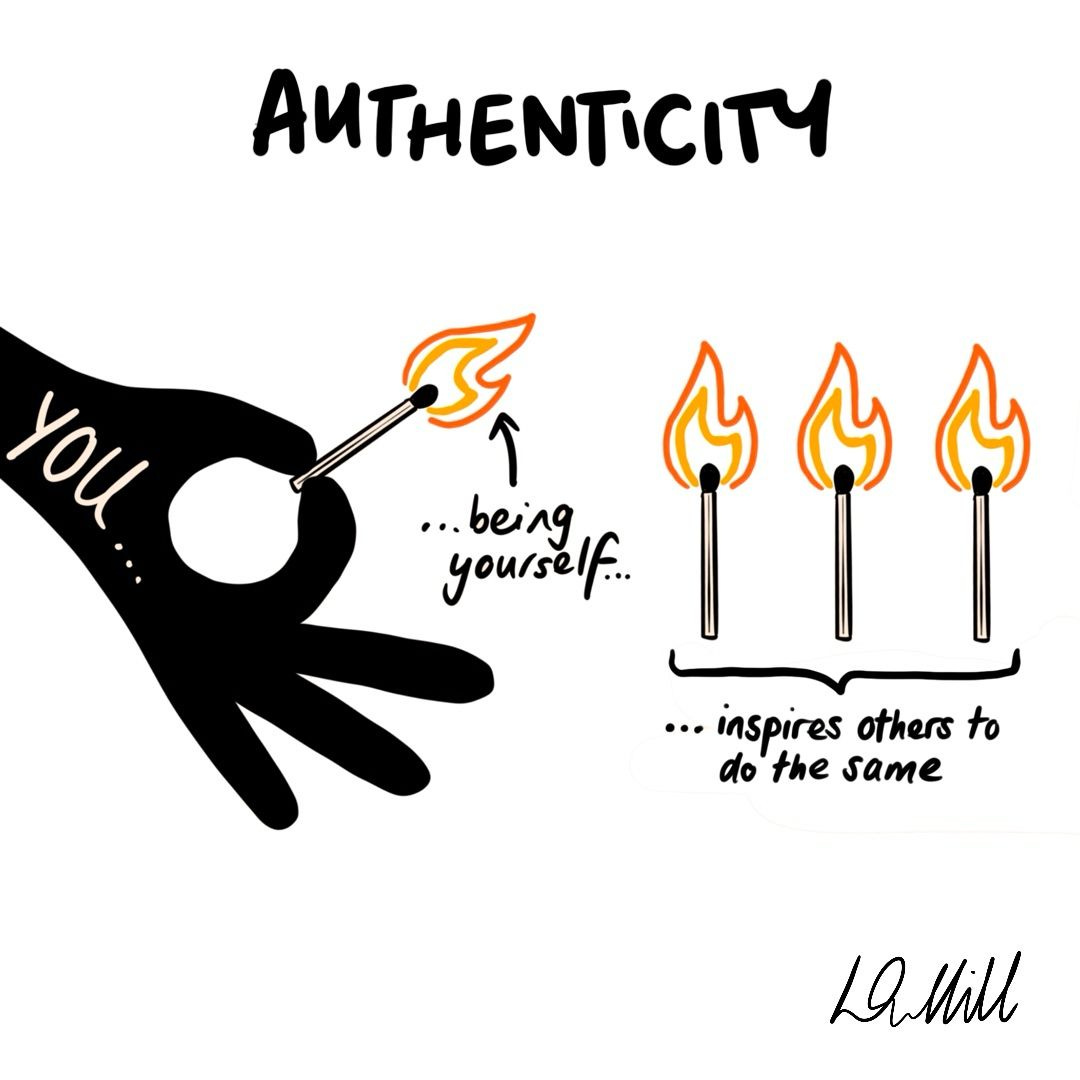

I felt especially seen in the part about performing goodness, obedience, even happiness, as a way to earn love. That line about your parents only knowing the version of you curated to win their affection, that hit hard. So many of us learn to wear the persona so well we forget we ever had a choice. And peeling it off later? It’s terrifying, but ultimately life-saving.
This resonated so much with me. I feel 1st generation kids get hit with this especially hard. You’re faced with creating multiple personas (one for home and one outside) and they’re constantly clashing.
The beautiful thing is once you unwind all the personas, there’s such expansive space to just be. Like you said it’s true unfettered freedom, and that’s needed now more than ever.